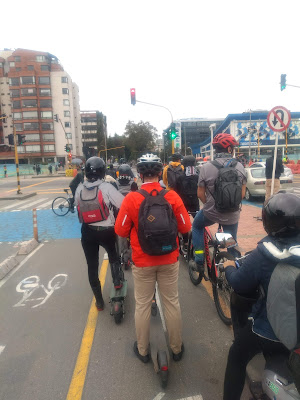[Listen to an audio version of this blog, together with the videos mentioned below, here.]
As an online content creator — no sniggering — seeing what kind of material attracts more clicks than others is both interesting and puzzling.
 |
| Room for growth: The numbers don't lie. |
And no, after over eleven years of blogging, I haven't discerned any real trend — not that I've been looking intently, I just like to write and record. An addiction, of sorts.
I started experimenting with YouTube Shorts this year — one has to react to the market and people's declining attention spans. I am, though, refusing to, um, kowtow to the Chinese by getting involved in TikTok.
As for my bread and butter of blogging, it could be said that this format reached its peak over a decade ago. My conservative/stubborn nature ensures I persevere with it, probably for worse, all things considered.
Yet, and I would say this, this blog has most likely been closer to the truth on many contentious issues than some of the mainstream media groups.
In terms of YouTube audio blog videos uploaded this year, the most viewed is Making ends meet in Colombia.
On The Corrigan Cast podcast, Covid-19, anti-vaxxers & immunity: My chat with Noel D. Walsh on Shannonside Northern Sound has had the most engagement.
Coming back to YouTube Shorts, while the faecal video has got the most views, there are two others that I think deserve even more exposure.
There's Police parking par excellence in Bogotá, (the police officers are actually sitting in the jeep in this video), while my favourite is Colombia's Got Talent (and some people dismiss this as "unskilled" labour!), which you can watch at https://www.youtube.com/shorts/cGmyECU4jK4. Give that man a bigger stage to showcase such silky skills!
Indeed, isn't that what many of us are looking for, a way to get greater reach and greater returns? The (shit) show goes on! Here's to a wonderful 2023!
__________________________________________________________
Listen to Wrong Way's Colombia Cast podcast here.
Facebook: Wrong Way Corrigan — The Blog & IQuiz "The Bogotá Pub Quiz".
Faecal force
Nonetheless, what becomes (relatively) hot never ceases to perplex me. For example, a rather nondescript YouTube Shorts video — a shit show, quite literally — has garnered the most views (watch it at https://www.youtube.com/shorts/IaWB8pbrTNo) on my channel in 2022.I started experimenting with YouTube Shorts this year — one has to react to the market and people's declining attention spans. I am, though, refusing to, um, kowtow to the Chinese by getting involved in TikTok.
As for my bread and butter of blogging, it could be said that this format reached its peak over a decade ago. My conservative/stubborn nature ensures I persevere with it, probably for worse, all things considered.
'The Bavaria beer employee deserves a bigger stage to showcase his silky skills.'What's more, commenting on and writing about current affairs is even more of a challenge. People tend to prefer and trust — go figure — the established media on such matters. A relatively unknown blogger is usually dismissed: 'Who are you to make such a statement?'
Yet, and I would say this, this blog has most likely been closer to the truth on many contentious issues than some of the mainstream media groups.
Reach for the sewer
On that front, my most-read — or most-viewed, in any case — Google Blogger story published in 2022 is Lest we forget. On El Tiempo, Gachetá if you can tops the list for this year.In terms of YouTube audio blog videos uploaded this year, the most viewed is Making ends meet in Colombia.
On The Corrigan Cast podcast, Covid-19, anti-vaxxers & immunity: My chat with Noel D. Walsh on Shannonside Northern Sound has had the most engagement.
Coming back to YouTube Shorts, while the faecal video has got the most views, there are two others that I think deserve even more exposure.
There's Police parking par excellence in Bogotá, (the police officers are actually sitting in the jeep in this video), while my favourite is Colombia's Got Talent (and some people dismiss this as "unskilled" labour!), which you can watch at https://www.youtube.com/shorts/cGmyECU4jK4. Give that man a bigger stage to showcase such silky skills!
Indeed, isn't that what many of us are looking for, a way to get greater reach and greater returns? The (shit) show goes on! Here's to a wonderful 2023!
__________________________________________________________
Listen to Wrong Way's Colombia Cast podcast here.
Facebook: Wrong Way Corrigan — The Blog & IQuiz "The Bogotá Pub Quiz".







.jpg)
.jpg)
.png)
.png)




.jpg)
.jpg)

